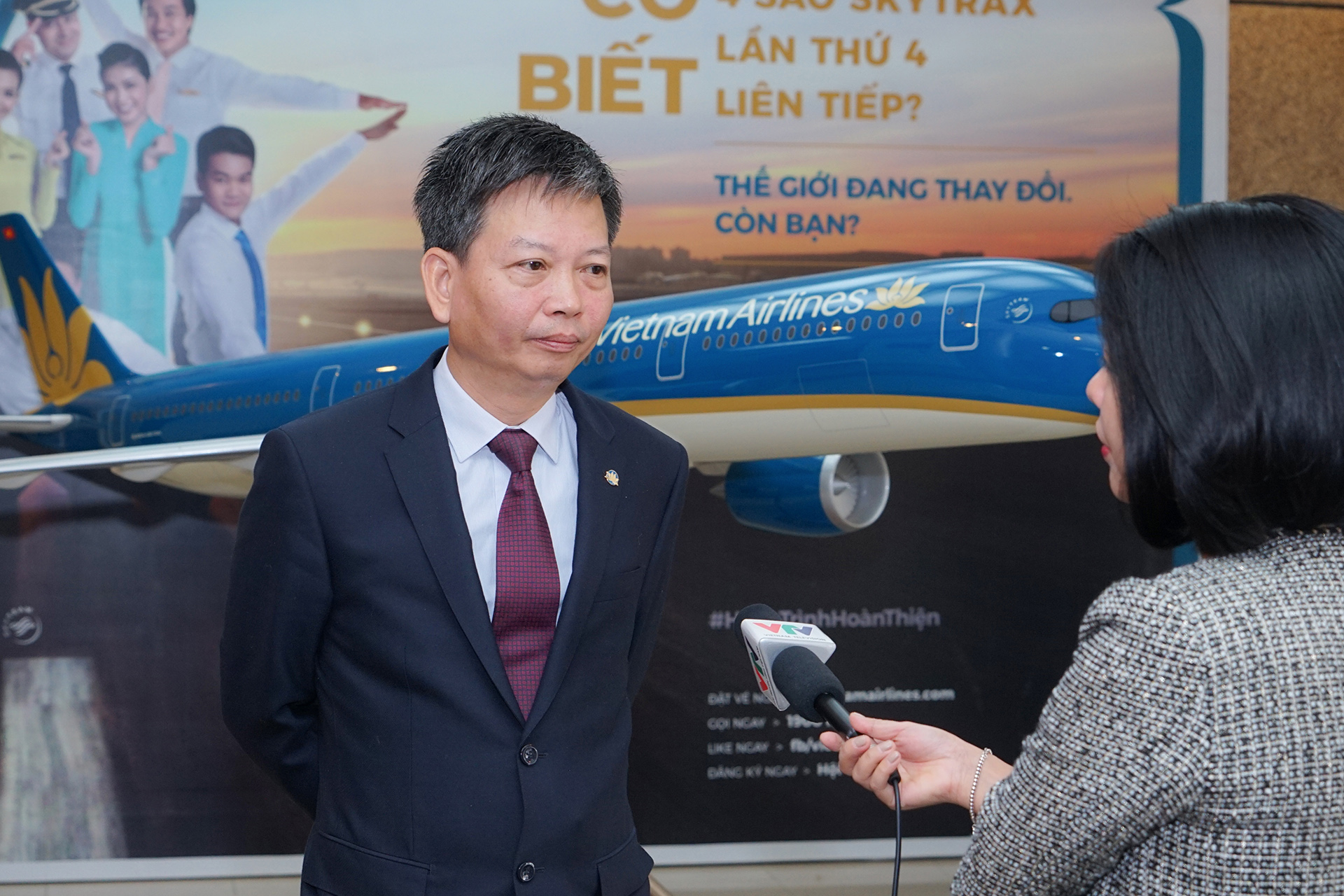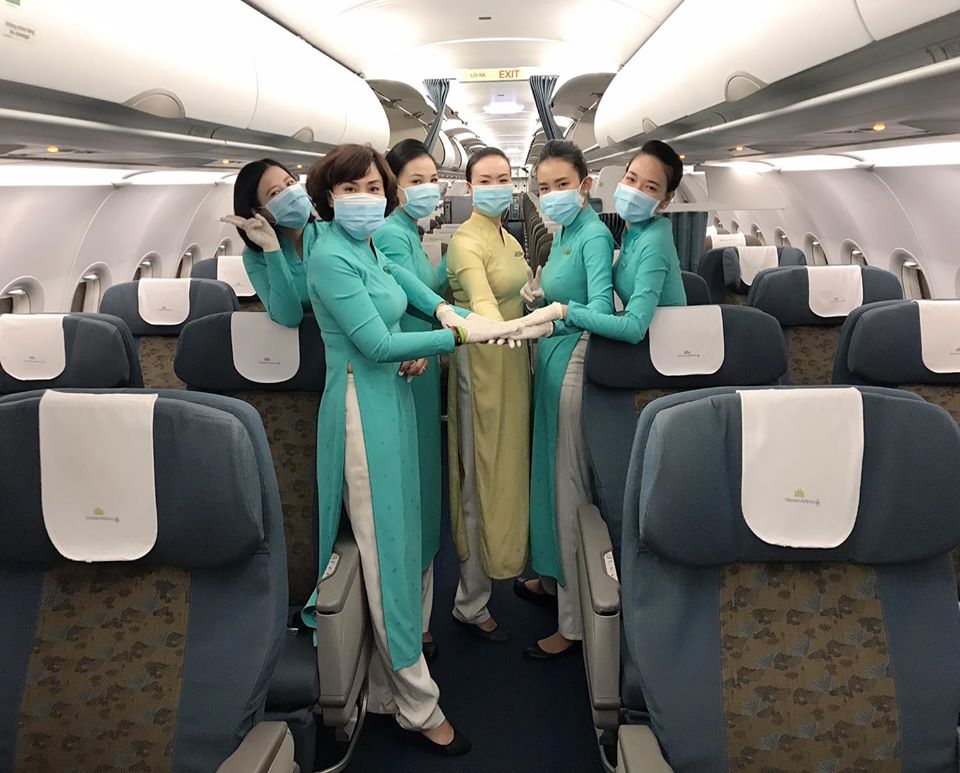In his interview with the press, Executive Vice President Trinh Ngoc Thanh shared about VNA’ process of coping with emergency situations involving infectious health risks, as well as the effort to ensure that adequate resources are at the ready for all potential epidemic situations.
 Executive Vice President Trinh Ngoc Thanh in his interview with the press (Cre: Vu Tuan).
Executive Vice President Trinh Ngoc Thanh in his interview with the press (Cre: Vu Tuan).
Facing complicated developments on the coronavirus, what adjustments has VNA made in its operation process?
The Corporation has strictly obeyed the cessation of flights involving provinces and cities in China that have reported outbreaks. Currently, VNA only maintains a minimum number of flights concentrated in three major cities: Beijing, Shanghai, and Guangzhou. VNA will continue to stay receptive to guidance and requirements from the Governments of the two countries and will make appropriate adjustments accordingly.
VNA is working closely with the press to ensure smooth communication with passengers in accordance with recommendations from the Ministry of Health. Every passenger should have an understanding of the virus to take proactive measures in protecting the health of themselves and the community. For instance, when boarding a plane, in a crowded area, passengers should wear a mask, follow instructions of the flight attendants, and limit person-to-person contact and communication when possible. In order to protect the health of the public, passengers with poor health conditions (such as those with fevers and coughs) should promptly report their status to flight attendants so that VNA can coordinate with health authorities at the airport and follow interdisciplinary coordination between units. VNA hopes this message will be received with understanding and cooperation from all passengers as well as employees in the aviation industry.

VNA has provided masks, and other equipment for the entire crew and will provide these items to passengers upon request (Cre: VNA).
Besides, the Corporation has just issued a special measure for flights to China. VNA limits and does not provide multiple-use products such as magazines, newspapers, headphones, blankets, and so forth. Regarding food, VNA will use disposable boxes instead of serving on trays as usual. Face masks for passengers and all crew, plus medical (latex) gloves for flight attendants were already provided ten days prior to Tet.
Does VNA have any specific action plan when passengers infected with this virus are detected?
So far, VNA has not recorded any cases in which passengers on flights have shown concerning symptoms. At all airports, the Civil Aviation Administration has directed the Port Authority of airports and hubs for interdisciplinary coordination when dealing with any potential arising situations. In the case that a flight attendant reports an infection, VNA members will implement isolation measures for the original flight and immediately notify pertinent ground units, prompting the medical team to follow up with the next step in the procedure – isolating the passenger, carrying out health checks and disinfecting the aircraft after landing.
What backup options does VNA have for other routes?
For other routes, VNA has provided masks, and other equipment for the entire crew and will provide these items to passengers upon request. Flight attendants and crew have been trained to identify and isolate passengers when a potential infection is detected and alert the ground for further coordination. For the flight crew – who face higher risk – VNA has actively trained flight attendants and pilots to protect themselves, take care of their health, maintain a healthy lifestyle, increase their vitamin intake and wash their hands regularly with soap and additional disinfecting agents that VNA has provided onboard.
Nguyen Mai Huong-COMM











